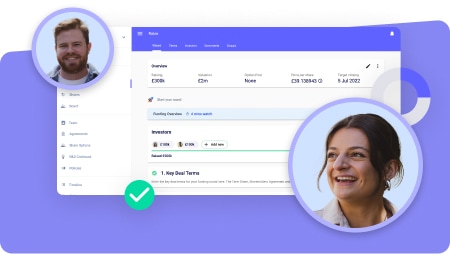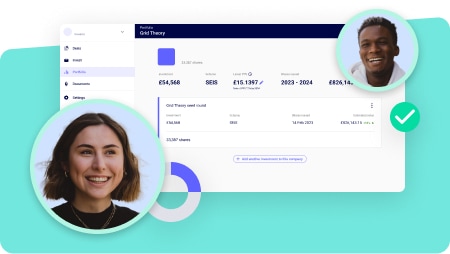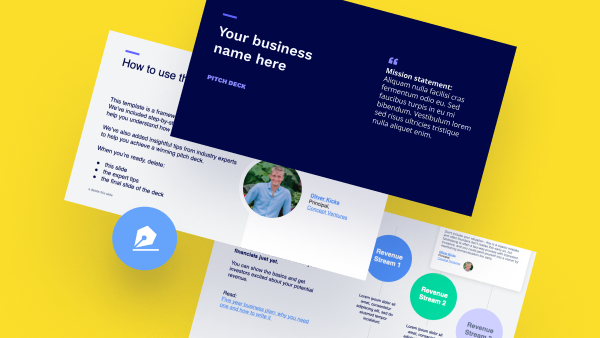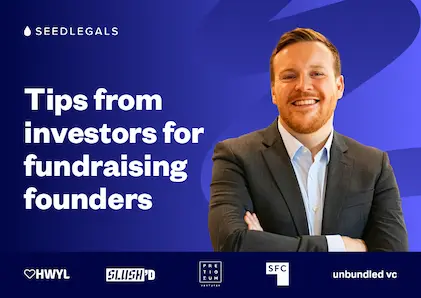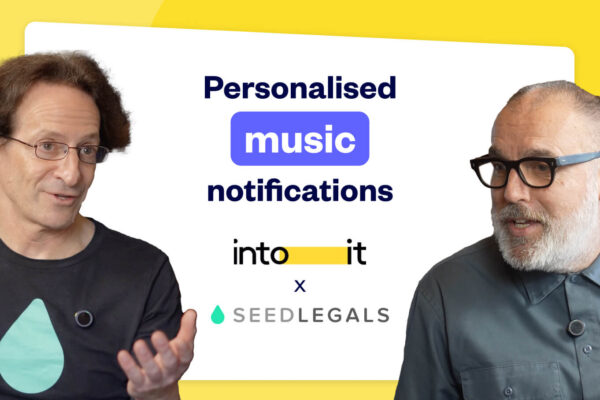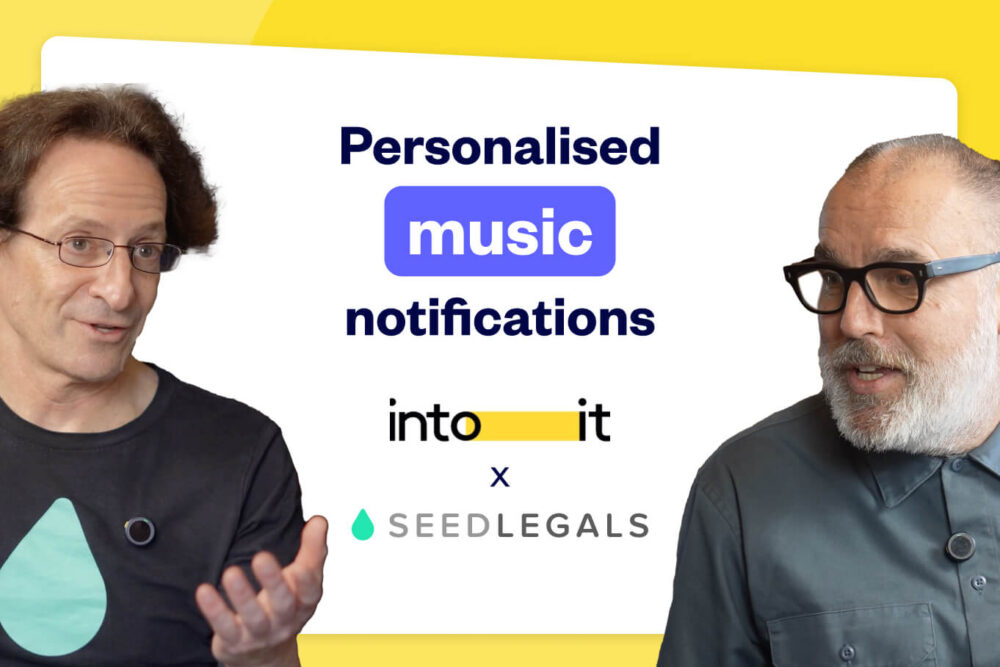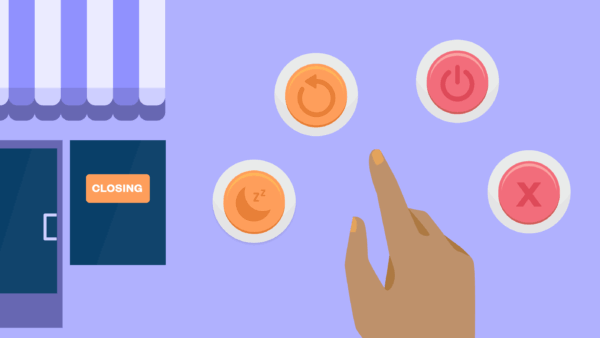Video transcript
Anthony Rose
All right, welcome to Founder Interviews, where I talk to amazing founders building really interesting things. Today, we’re talking to Lee from Into-it, and we’re going to learn all about programmatic advertising, browser extensions, and the music business. It’s going to be super exciting. So, Lee, tell us a bit more. Introduce yourself.Lee Henshaw
Thank you, Anthony. My name’s Lee Henshaw. I’m the founder of a company called Into-it. Into-it is a Chrome browser extension that exists to keep music fans up to date on their favorite artists’ latest singles, albums, merchandise, and tours by doing a very simple thing: replacing the banner ads on their favorite websites with personalized music notifications.Anthony Rose
OK, so we all have browser extensions. Some of them have millions of users, like ad blockers and so on. So you’re hoping to get mass distribution as a browser extension?Lee Henshaw
Exactly. So, for somebody watching this, if they’re interested, they would go to into-it.co.uk, install the browser extension, and then what happens next? They tell it the music they like, and as they browse the web, here’s what happens. You first tell Into-it the genres of music you like. So, you might be into hip hop, electronic, or jazz. Then, you tell it specifically the artists you’re into. The next thing that happens is when you go to one of your favorite news websites, instead of seeing those banner ads that you’ve probably been ignoring or blocking, you see notifications about your favorite artists—or at least artists in genres you like. You’ll get updates on new singles, albums, tours, and merchandise.Anthony Rose
So, it’s transforming that banner ad into something useful rather than just a minor irritation.Lee Henshaw
Exactly. We’re changing something that’s been an annoyance into something truly valuable.Anthony Rose
So, the fascinating thing with browser extensions is that you’re controlling the ads or information the user sees on someone else’s site. You can take away the original ad and put in something like ticketing or merch. It’s a fascinating model. Tell me about programmatic advertising. For someone watching, what does programmatic mean, and how does Into-it use it?Lee Henshaw
Programmatic simply means the automation of buying and selling advertising. It’s analogous to what happened with trading stocks and shares in the 80s and 90s when that was automated. The advertising industry has gone through a similar process, and at the time, it was seen as a remarkable development, technologically speaking. But it has become problematic for all stakeholders—advertisers, publishers, and consumers. For advertisers, it’s turned into what economists call a “market for lemons,” riddled with information asymmetry. You don’t know whether you’re buying a peach or a lemon.For publishers, it’s a race to the bottom. Advertising technology has devalued and defunded their inventory, leading to journalists losing their jobs. Last year, 8,000 journalists lost their jobs across the US and UK. It was 1,500 the year before. And for consumers, like you and me, people are just sick of it. The author Doc Searls described ad-blocking as the biggest consumer boycott ever. It’s a huge automated market riddled with problems, and we’re trying to fix those problems for all stakeholders.
Anthony Rose
OK, so you’re starting with the music industry. Tell me, as someone who loves music, I install it—what happens next? And how do you make revenue?Lee Henshaw
Music is the tip of the spear for us. This is the third company I’ve launched in the music industry. I find that the music industry, which often acts like the canary in the coal mine, is very inquisitive, especially when it comes to marketing. Our solution is great for music companies because they’re marketing to fans who’ve said, “Yes, I’m into this artist” or “Yes, I’m into this genre of music.” Immediately, that’s more effective communication. For publishers, they can charge more money for this, so it increases their yield. But for music fans, what we’ve developed keeps them up to date with their favorite artists’ new releases, merchandise, and tours better than any other solution. Other methods out there are imperfect, in my mind. Our solution is ideal because you see notifications about your favorite artists while you’re on websites you already visit regularly.One final thing: I’m absolutely keen to say that what we’re doing isn’t advertising. These are notifications. Advertising is pushed onto you; notifications are something you opt to pull in. They’re a lot more polite.
Anthony Rose
Interesting. The important question is: Can it get me Taylor Swift tickets?Lee Henshaw
It might tell you when those Taylor Swift tickets are available. Whether it helps you actually get them, I’m not sure!Anthony Rose
What got you out of bed one morning to say, “I want to start this”?Lee Henshaw
It was actually a book. Into-it is inspired by a book called The Intention Economy by Doc Searls. He’s the same person who coined that phrase about ad-blocking. Doc is an ex-ad man turned author, and in the book, he makes a prophecy. He says that one day we will move away from the “attention economy”—where everyone is competing for our attention—to what he calls the “intention economy.” In this future economy, we, the customers, get to reveal what we intend to buy, and the market competes to sell us that thing. So, that’s what I’m doing with Into-it: it’s an intention economy product.Anthony Rose
So, tell me about your traction so far.Lee Henshaw
We’ve built our browser extension, which is patent-pending. We’re getting great publicity in the trade press and have been described as a great example of true innovation in the ad industry. We’ve raised a decent sum of money from people in the advertising industry, including Danny Brooke-Taylor, Andy Nairn from Lucky Generals, and Dino Myers-Lamptey from The Barber Shop. Right now, we’re conducting a pricing survey to determine the true economic value of our notifications. We’ve got 40 artists from various genres and over 200 media buyers participating. We’re also launching our seed round and looking to raise money next year to expand into the UK and US markets.Anthony Rose
Sounds amazing. I’ve learned a lot. Tell me a bit about the technology. Your co-founder is a CTO and a guru in the space, right?Lee Henshaw
Yes, our CTO is the great Sahar Saddam. He runs a company called Hackmasters. They’re ex-hackers turned developers. Sahar would tell you that we’ve effectively hacked the programmatic media-buying ecosystem by getting it to do something it wasn’t originally designed to do—replace ads with notifications. The browser extension is just one of our first tools. We’ve started with Chrome because it’s accessible, but next year, we plan to build extensions for Safari and other browsers. We’ll also develop desktop and mobile apps to ensure fans can have this experience no matter which browser or device they’re using.Anthony Rose
It’s been fascinating. I’ve learned that “programmatic equals problematic” can be replaced with “intention.” While we’re on the subject, the term “permission marketing” comes to mind—where you get a consumer to give you permission to sell to them by opting in. That transforms the conversation from a barrage of ads to something much more engaging. It sounds fantastic. How can people get in touch with you?Lee Henshaw
They can contact me via LinkedIn, Lee Henshaw, or visit our website at into-it.co.uk—that’s I-N-T-O hyphen I-T dot co dot U-K.Anthony Rose
Amazing. Great talking with you.Lee Henshaw
Thank you, Anthony.
Wouldn’t it be nice to choose the ads you want to see online? Into it thinks so, and they’re making it possible.
In this edition of Founder Interviews, Anthony Rose sits down with Lee Henshaw, the founder of Into-it, a Chrome browser extension designed to transform the way music fans interact with their favourite artists.
Lee has a deep history in the music industry, having launched two other companies in the space. With Into-it, he is taking his passion for music and technology a step further, aiming to solve a pressing issue in the advertising world by giving fans useful notifications rather than intrusive ads.
Into-it replaces traditional banner ads on websites with personalised updates about users’ favorite artists, keeping them in the loop on new music, merchandise, and concert tickets—all while solving some of the biggest problems plaguing the advertising industry today.
The Problem
- Programmatic advertising, which automates the buying and selling of ads, has become problematic for advertisers, publishers, and consumers alike.
- Advertisers often don’t know if they’re getting real value from their ad spend.
- Publishers face declining ad revenues.
- Consumers are fed up with intrusive ads.
- The programmatic advertising ecosystem has become “a market for lemons,” no longer delivering effective results for any stakeholders.
The Solution Into-it Offers
- Into-it solves these issues by transforming traditional banner ads into something useful for music fans.
- Users install the browser extension and select their favorite music genres and artists.
- Into-it replaces intrusive banner ads with personalized notifications about new releases, tours, and merchandise from these artists.
- This turns disruptive ads into something fans actually want to see, while providing better value for publishers and advertisers.
Into It’s vision for the future
- The team plans to build browser extensions for Safari, desktop apps, and mobile apps to ensure fans can access notifications on any device.
- The service could expand beyond music, applying its user-centric advertising model to other industries.
- Into-it aims to be part of the “intention economy,” where users choose what they want to see, shifting away from traditional attention-grabbing advertising.
Get founder interviews to your inbox
Plus our latest news, events and helpful resources for founders & investors.
Sign up to our newsletter
